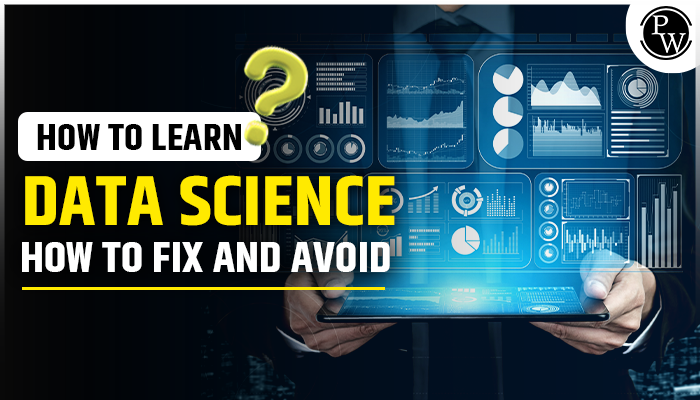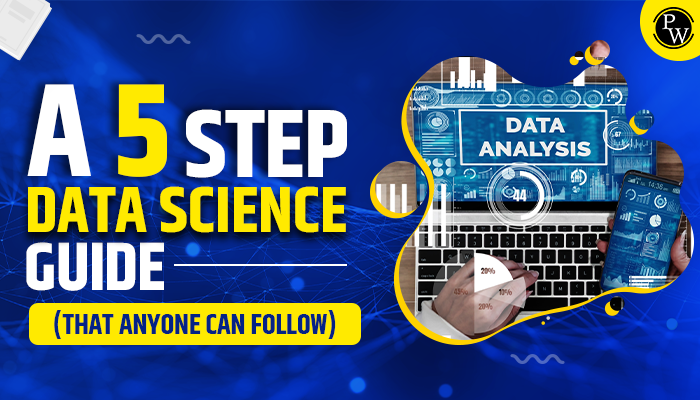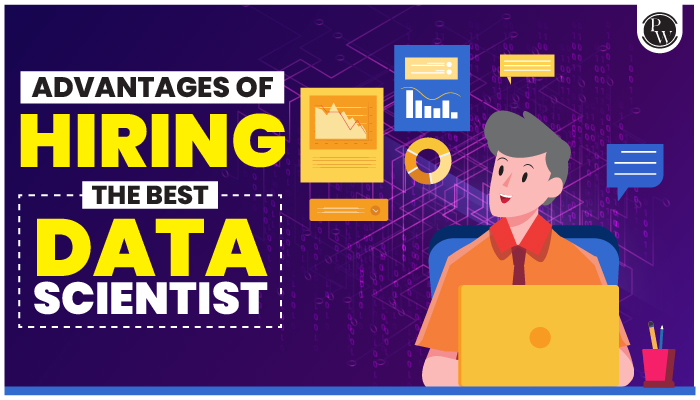Data science is a highly sought-after field with a growing demand for professionals with a deep understanding of data analysis and machine learning. The first step to becoming a data scientist is to learn the fundamentals of the field and gain hands-on experience working with data. However, finding the right platform to learn data science can be a challenge, and many aspiring data scientists make common mistakes that can impede their progress.
This article will explore some key steps to learning data science course and the common pitfalls to avoid. First of all, let us know about data scientists.
Recommended Course
- Decode DSA with C++
- Full Stack Data Science Pro Course
- Java For Cloud Course
- Full Stack Web Development Course
- Data Analytics Course
Who is a Data Scientist?
A professional with data analysis and interpretation expertise is known as a data scientist. This is because they help organizations make better decisions and run more efficiently by utilizing their data science skills. Data scientists frequently come from statistics, computer science, and mathematics backgrounds. They analyze sizable data sets using this knowledge to look for trends or patterns. Data scientists might also create brand-new techniques for gathering and storing data.
Data scientists perform the following duties:
- Source data that may be useful in resolving the problem.
- Recognize scenarios in which data can be used to solve issues.
- Clean up the data and ensure it meets the organization’s data accuracy requirements.
- Create models and generate insights using algorithmic methods.
- Communicate findings to various stakeholders, and use storytelling and data visualization.
Can I Learn Data Science On my Own?
Data science can be learned on your own by taking online courses or watching YouTube videos. If you want to work in this industry, the Internet is a wealth of educational resources. However, self-learning lacks structure, and you may be unaware of missing critical components. Data science courses and boot camps provide a good balance of independence and support because they have an experienced instructor and a supportive group environment.
Beginners often commit several mistakes while choosing the right Data Science course. The following section will explain these mistakes and how to avoid or fix them.
Common Mistakes Students Commit While Choosing Their Course
Data Science is a rapidly growing field with numerous job opportunities. A strong foundation in Data Science can lead to a lucrative and fulfilling career, which is why many people are interested in learning the skillset. However, choosing the right Data Science course can be confusing, as many options are available in the market. To help you make an informed decision, here are some common mistakes to fix or avoid while choosing a Data Science course.
- Not considering the difficulty level: Data Science can be a complex subject, and choosing a course appropriate for your current skill level is important. Some courses may be too advanced for beginners, while others may not challenge experienced professionals enough.
- Ignoring the course structure: The structure of the course is important to ensure that you learn the essential concepts systematically and comprehensively. Look for a course that covers the basics and gradually builds upon that foundation.
- Not checking the instructor\’s credentials: The course quality depends largely on the instructor\’s expertise. Make sure to research the instructor\’s background and experience in the field of Data Science. A reputable instructor will have a strong academic and professional background in the subject.
- Not considering the course length: A long course may not be feasible for people with busy schedules, while a short course may not provide enough information to understand the subject fully. Choose a course that offers a balance between length and depth of content.
- Not paying attention to the course format: There are several options for course format, including online, in-person, and self-paced. Each format has advantages and disadvantages, so choosing the best one that suits your needs is important.
- Not considering Data Science course fees: Data Science courses can be expensive, but choosing a course that provides good value for your money is important. Make sure to compare the cost of different courses and consider their benefits, such as course materials, certificates, and job placement assistance.
- Not prioritizing the hands-on component: Hands-on experience is essential in Data Science, as it allows you to apply the concepts you have learned. So look for a course with hands-on exercises and projects that simulate real-world scenarios.
PW Skills Provide Various Platform
So What is the Right Way to Learn Data Science?
Choosing the right data science course can be confusing, but ensuring that you receive a comprehensive education that meets your goals is important. Here are some steps to help you choose the right data science course:
Start with the basics
Before diving into complex machine learning algorithms, it\’s important to build a solid foundation in statistics, mathematics, and programming. Probability, linear algebra, calculus, and SQL are essential concepts you should learn. Additionally, python is a popular language for data science, so it\’s a good idea to familiarise yourself with the language and its libraries for data analysis, such as Pandas and NumPy. Finally, determine what you hope to achieve by taking a data science course. This could be learning a new skill, preparing for a career change, or enhancing your current job.
Learn From Reputable sources.
Many sources are available for learning data science, ranging from online courses to books to boot camps. However, not all sources are created equal, and choosing well-respected and up-to-date resources is important. Some popular online platforms for learning data science include Coursera, PW Skills, Udemy, and DataCamp. You can also consider attending a boot camp or taking a specialized course at a local university or community college.
Evaluate the instructor and format.
The quality of the course depends mainly on the expertise of the instructor. Therefore, research the instructor\’s background and experience in data science, and look for positive reviews from past students. Data science courses are also offered in various formats, including online, in-person, and self-paced. Choose a format that best fits your schedule and learning style.
Get hands-on experience
The best way to learn data science is to work on real-world projects. Participate in hackathons and Kaggle competitions, and contribute to open-source projects. This will help you build a portfolio to showcase to potential employers and give you a deeper understanding of how data science is applied in real-world scenarios.
Avoid over-specialization
While gaining expertise in a specific area of data science, it\’s also essential to have a broad understanding of the field. This will help you understand how different techniques and tools can be applied in different situations and allow you to be more versatile in your problem-solving approach.
Don’t neglect the business side of Data Science
Data science is not just about writing code and analyzing data. It\’s also about understanding how data can be used to make business decisions. Therefore, you should learn about the business side of data science, including communicating your findings to stakeholders, effectively managing data projects, and making ethical decisions regarding data use.
Conclusion
Learning data science is an important decision. It requires careful consideration and a combination of formal education, hands-on experience, and a deep understanding of the field. However, by avoiding common mistakes and following the steps outlined in this article, you can become a successful data scientist and make a meaningful impact in the world of data.
Frequently Asked Questions (FAQs)
Q1. How can I Learn Data Science effectively to succeed in this field?
Ans: While finding the right platform to learn data science can be a challenge, there are several steps you can take to ensure that you are on the right track. By starting with the basics, learning from reputable sources, getting hands-on experience, avoiding over-specialization, and understanding the business side of data science, you can set yourself up for success in this exciting and rapidly growing field.
Q2. What should I consider when choosing a platform for data science?
Ans: When choosing a platform for data science, you should consider the difficulty level and the instructor\’s quality. Paying attention to the course format, hands-on experience, course materials, and cost is also necessary. Additionally, you should look for a platform that offers a comprehensive curriculum that covers the essential topics in data science and provides opportunities to practice and apply what you have learned.
Q3. Do I need to have prior programming experience to start learning data science?
Ans: While prior programming experience can be helpful, it is not necessary to start learning data science. Many platforms offer courses for beginners and provide comprehensive training in programming languages, such as Python and R.
Q4. Can I get a job after taking a data science course on an online platform?
Ans: You can get a job online after taking a data science course. However, the success of your job search will depend on factors such as your skillset, experience, and the demand for data science professionals in your area. Choosing a platform that offers career support and resources, such as job placement assistance and a strong alum community, is important.
Q5. Are online platforms for data science cheaper than traditional in-person courses?
Ans: Online platforms for data science can be more affordable than traditional in-person courses. They do not have the overhead costs associated with running a physical classroom. However, the price of online courses can vary, and it\’s important to compare the cost of different platforms and consider the benefits they offer before making a decision.
Recommended Reads
Data Science Interview Questions and Answers
Data Science Internship Programs






